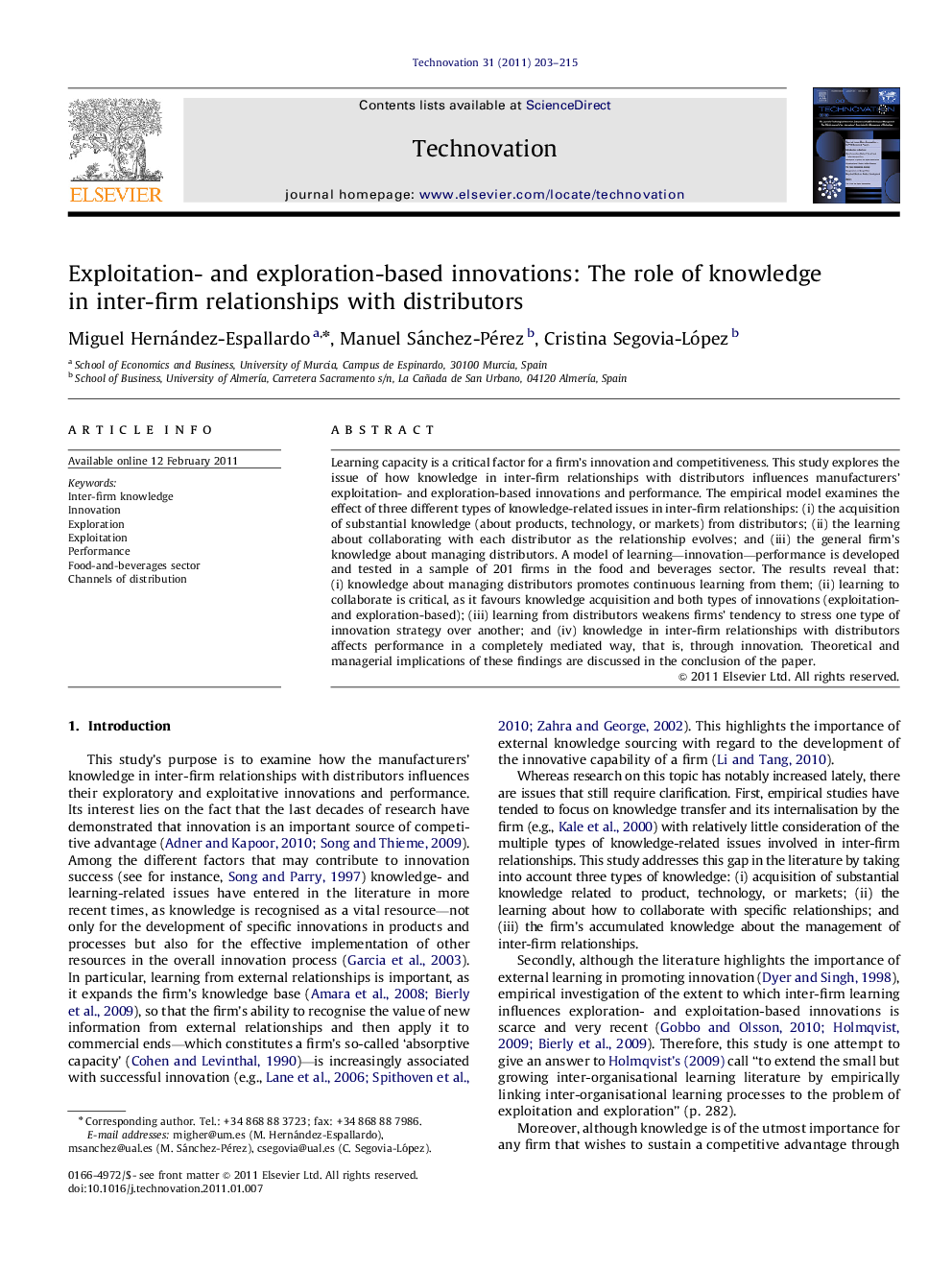| Article ID | Journal | Published Year | Pages | File Type |
|---|---|---|---|---|
| 1022261 | Technovation | 2011 | 13 Pages |
Learning capacity is a critical factor for a firm’s innovation and competitiveness. This study explores the issue of how knowledge in inter-firm relationships with distributors influences manufacturers’ exploitation- and exploration-based innovations and performance. The empirical model examines the effect of three different types of knowledge-related issues in inter-firm relationships: (i) the acquisition of substantial knowledge (about products, technology, or markets) from distributors; (ii) the learning about collaborating with each distributor as the relationship evolves; and (iii) the general firm’s knowledge about managing distributors. A model of learning—innovation—performance is developed and tested in a sample of 201 firms in the food and beverages sector. The results reveal that: (i) knowledge about managing distributors promotes continuous learning from them; (ii) learning to collaborate is critical, as it favours knowledge acquisition and both types of innovations (exploitation- and exploration-based); (iii) learning from distributors weakens firms’ tendency to stress one type of innovation strategy over another; and (iv) knowledge in inter-firm relationships with distributors affects performance in a completely mediated way, that is, through innovation. Theoretical and managerial implications of these findings are discussed in the conclusion of the paper.
Research highlights▸ Learning in inter-firm relationships as a multidimensional phenomenon. ▸ Learning in relationships with distributors as a precursor of manufacturers’ innovation. ▸ Differential effects of learning on exploration- and exploitation-based innovations. ▸ The effects of learning on performance is completely mediated by innovations.
